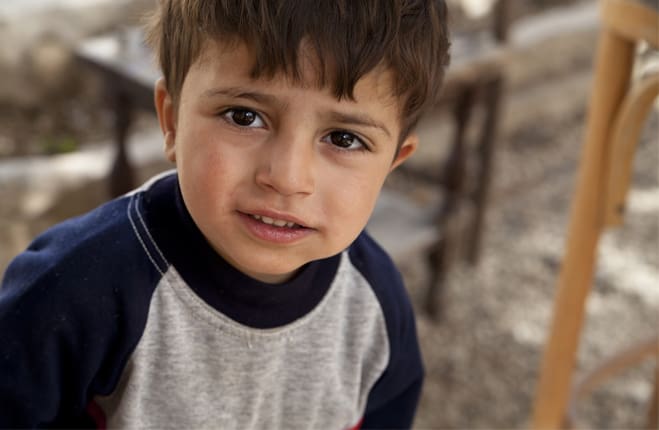
Così Bassam salverà Aleppo
«Non lo riconosci?». Ero appena arrivato nel convento francescano di Aleppo quando un ragazzo alto, giovane, con gli occhiali grandi, una camicia sgargiante e un sorriso che mi colpì, mi abbracciò forte. Era Riad Jallouf e lo conoscevo. Ci eravamo incontrati anni prima con sua moglie Kinda Tauil. Quel lungo abbraccio ad Aleppo è stata l’unica «infrazione» che ho fatto alle regole anti-Covid. È dallo scorso marzo che non abbraccio nessuno, se non i miei familiari.
Quando li avevo conosciuti, Riad e Kinda portavano ancora il lutto, erano vestiti di nero, la loro casa era buia, l’unica luce illuminava una foto piccola, a colori, del loro unico figlio ucciso da un cecchino a soli otto anni. Mi trovai di fronte un uomo diverso. «A Pasqua, la notte di Pasqua siamo rinati. Abbiamo pensato che nostro figlio dal Paradiso voleva che noi continuassimo a vivere per lui, per tutti i bambini di Aleppo. Abbiamo un figlio, siamo tornati alla vita, e lo dobbiamo a Bassam e al Signore Risorto». Disse tutto di corsa come si fa con un amico al quale devi raccontare tante cose in pochi secondi. Avevano ricominciato a vivere, anche questo sta accadendo ad Aleppo, in Siria.
Sono stati oltre 24.000 i bambini e le bambine uccisi in Siria. Durante “la battaglia di Aleppo”, dal 19 luglio 2012 al 22 dicembre 2016 i cecchini li hanno colpiti mentre andavano a scuola, mentre erano a giocare negli oratori, mentre camminavano radente ai muri con i loro genitori. Bassam è stato ucciso mentre era all’oratorio e stava giocando con i suoi compagni. Era l’unico figlio di una giovane coppia, che «vedeva in lui l’amore, la vita che regalava felicità nel vederlo crescere». Bassam, come migliaia di altri bambini e bambine, uccisi, mutilati, colpiti solo perché bambini. Uccisi per uccidere il futuro del Paese. Ora Bassam rappresenta veramente «il seme che caduto in terra muore e dà frutto, molto frutto». Suo papà e sua mamma hanno ripreso a vivere e a costruire una città dove la guerra non ci sia più. I bambini hanno ripreso ad andare a scuola, non senza difficoltà perché ciascuno è ritornato nella propria classe ma chi ha subito traumi psicologici o fisici lo sta facendo con molta difficoltà. Chi per anni ha vissuto senza toccare un libro e una penna, rischia di perdere anni di scuola. Le classi sono troppo numerose e chi resta indietro viene escluso. I francescani, con tanti volontari, stanno aiutando anche nel recupero scolastico.
Dopo la fine della guerra, era inutile provare a giocare a calcio con i bambini qui ad Aleppo. I ragazzi pensavano che quella cosa colorata che rotolava sull’asfalto fosse una bomba, un ordigno pronto a esplodere, a uccidere. I colori, la musica, il teatro, il cinema era spariti assorbiti dagli spari, dalle esplosioni, dai missili che colpivano ovunque: chiese, moschee, case e interi palazzi. Dopo due anni, la terapia del gioco sta dando i suoi frutti. Il convento dei francescani, di sant’Antonio da Padova, si trova nel centro della città e i francescani vi hanno costruito, nel grande giardino che lo circonda, campi da calcio, da basket e soprattutto una grande piscina che, durante l’estate, si popola di migliaia e migliaia di bambine e bambine di ogni età. Musulmani e cristiani provano a ritrovare il sorriso con due schizzi d’acqua e una merenda fatta insieme: settantamila le presenze nella scorsa estate, la seconda dopo la fine della guerra. È una terapia che vede coinvolti molti giovani che con la musica, il teatro, la pittura, il disegno, lo sport hanno individuato percorsi di recupero. Li guida una giovane dottoressa musulmana, Binan, insieme ad abuna Firas Lutfi, Ministro regionale dell’area di S. Paolo che comprende Libano, Siria e Giordania della Custodia di Terra Santa.
Renato Burigana
